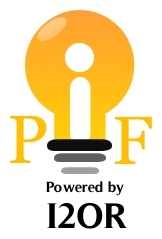Efficacy Study of Iodine Fortification of Milk on Iodine Status Markers: A Longitudinal Interventional, Controlled Study Among Schoolchildren in Morocco |
| ( Volume 1 Issue 3,July 2015 ) OPEN ACCESS |
| Author(s): |
Fatima Ezzahra Zahrou, Imane El Menchawy, Kaoutar Benjeddou, Issad Baddou, Khalid El Kari, Asmaa El Hamdouchi, Mohamed El Mzibri, El Arbi Bouaiti, Amina Barkat, El Arbi Rjimati, Hakim Belghiti, Noureddine El Haloui, Hassan Aguenaou |
| Abstract: |
|
Iodine deficiency is prevalent worldwide and can affect growth, mental development and learning ability of school children. In line with the Moroccan National Strategy for Nutrition 2011–2019, we undertook a study to evaluate the efficacy of the consumption of iodine fortified milk on iodine status of children living in rural region. The stud is a longitudinal, interventional double-blinded (participants and assessors), controlled one concerning 200 children, aged 7 to 9 years, recruited from 3 schools in a rural, high altitude province in Morocco. The sample was divided in two groups: a non-fortified milk group (NFM, n=103) received 200ml of non-fortified Ultra High Temperature (UHT) milk and a fortified milk group (FM, n=50) received 200ml UHT milk fortified with iodine persulfate to cover 30% of Recommended Daily Intake. Urine samples were collected at baseline, 4th and 9th month and urinary iodine was determined spectrophotometrically using the Sandell-Kolthoff reaction. Severe iodine deficiency was prevalent among the FM group. After interventions at 4th and 9th month, there was a marked improvement in the case of severe iodine deficiency in the FM group (4.0% at baseline, and none at 4th and 9th month).The NFM group had an important moderate decline from 3.9% at baseline to 1.9% at 9th month. For the moderate iodine deficiency, the prevalence was reduced from the baseline to the end of the study (9th month) ranging from 35.9% to 6.0% in both groups. Whereas for the mild iodine deficiency, the prevalence was increased at the 4th month to 63.7% and 47.7% respectively in NFM and FM groups and then decreased at 9th month to 23.3% and 22.0% respectively in NFM and FM groups. The consumption of fortified UHT milk seems to be an effective strategy to reduce iodine deficiency among schoolchildren in this rural region of Morocco. Trial registration: PACTR201410000896410. Registered 24 October 2014.
|
| Paper Statistics: |
| Cite this Article: |
| Click here to get all Styles of Citation using DOI of the article. |
 Click Here for
Click Here for Track Your Paper

 Call for Paper
Call for Paper
